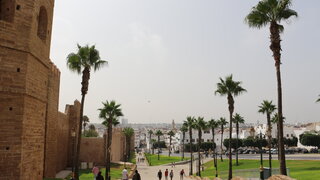Morocco’s New NDC 3.0 Sets More Ambitious Targets for the Country’s Energy Transition
Morocco has officially submitted its Nationally Determined Contribution (NDC 3.0) to the United Nations Framework Convention on Climate Change (UNFCCC). This new framework strengthens the Kingdom’s ambitions to reduce greenhouse gas (GHG) emissions in order to contribute to the global goal of limiting temperature rise to 1.5°C, while reaffirming Morocco’s leading role in the regional energy transition. The NDC 3.0 aims for a 53% reduction in GHG emissions by 2035, compared to 45.5% in the version published in 2021. This increased ambition is based on a broader approach that includes all economic sectors, additional greenhouse gases, and sub-sectors that were previously not covered.
The energy sector occupies a central place in this new climate roadmap. Morocco has now set the goal of tripling its installed renewable energy capacity by 2030, to reach over 15 GW. This dynamic is part of the national low-carbon roadmap for 2050 and mobilises more than USD 21 billion in investments for green electricity generation alone. Moreover, as a member of the Powering Past Coal Alliance since 2023, the Kingdom confirms its gradual phase-out of coal, aiming for a complete exit by 2040, conditional on strengthened international support, and an unconditional exit starting from 2040. The industrial sector is also included in these objectives, through energy efficiency and modernisation projects designed to reduce national emissions.
The NDC 3.0 is fully aligned with Morocco’s major national strategies, including the National Sustainable Development Strategy (SNDD 2035), the New Development Model (NMD 2035), and the National Low-Carbon Roadmap by 2050. For the first time, climate ambitions have been integrated into national budget planning, ensuring better coherence between climate action and public financing. Morocco commits to reducing its emissions by 21.6% (36.02 Mt CO₂ eq) unconditionally, and by 53% (52.21 Mt CO₂ eq) with international support. These figures represent significant progress compared to NDC 2.0, which targeted reductions of 18.3% and 27.2%, respectively.
With NDC 3.0, Morocco confirms an ambitious energy vision based on renewables, coal phase-out, and alignment with national strategies. The country thus reaffirms its role as an African leader in the energy transition, while emphasising the importance of international support to fully achieve its objectives.
